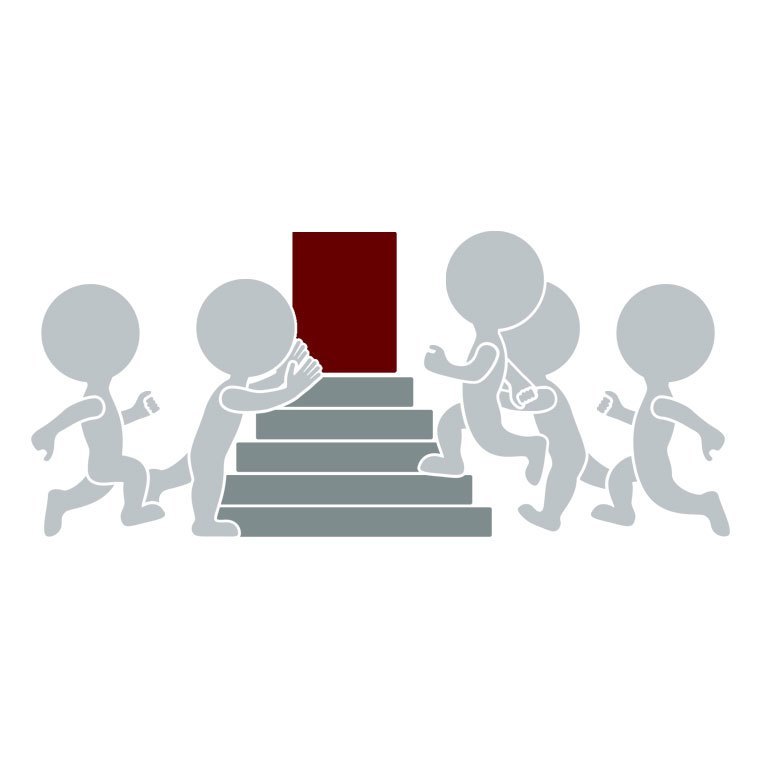Hugh MacLeod published an article at his blog on 2/14/2010 entitled “the three keys to social media marketing.” If MacLeod’s name is familiar, that’s a good thing. He’s the author of one of my favorite books, Ignore Everybody: and 39 Other Keys to Creativity, which serves as source material for the series of articles here under the tag keys to creativity. In his blog post, MacLeod suggests that sincere gift giving leads to successful social media marketing. In his case, the gifts are his cartoons but that got me wondering how this could apply to the orchestra business…
MacLeod’s three keys consist of:
1. Figure out what your gift is, and give it to them on a regular basis.
2. Make sure it’s received as a real gift, not as an advertising message
3. Then figure out exactly what it is that your trail of breadcrumbs leads back to.
 He concludes by writing “It can’t be selfish. It can’t expect something back in return. It can’t huckster. People can tell, you see…” All of this makes good sense from the perspective of recommended social media practice, such as the items espoused here in the How To Connect With New Media series.
He concludes by writing “It can’t be selfish. It can’t expect something back in return. It can’t huckster. People can tell, you see…” All of this makes good sense from the perspective of recommended social media practice, such as the items espoused here in the How To Connect With New Media series.
In MacLeod’s case, giving away his back-of-a-business-card art is comparatively easy. For orchestras, the gift of our art is less straightforward.
The most apparent option is to give away sound clips on any sort of regular basis (daily, weekly, etc.) but that has a number of strings attached if you want to use clips from your respective ensemble. Unlike MacLeod’s single artist/agent model, orchestras have a multitude of stakeholders involved in that process.
However, if this is something that can be addressed to the satisfaction of all stakeholders involved then you’re set to go. Alternative resources include exploring options with other content owners/distributors such as Naxos Music Library or IODA promonet, but you’ll still need to work out some sort of agreement, which may require remuneration.
If none of those options work, what else can orchestras give away as a gift besides music? What else do we have of value that is also interesting to potential ticket buyers and donors? Undoubtedly, there are additional resources at our disposal but I’m interested in seeing what readers think before exploring this any further (so submit a comment).
The other outstanding item here is related to the third of MacLeod’s three keys. Specifically, how to go about tracking breadcrumbs. We’ll explore that topic in a future article along with “gift” ideas coming in as comments.



Each SF Symphony program has a couple of pages of little interviews with an orchestral musician. There are typical questions: how’d you start playing your instrument? what music do you love? what are you reading? what are your hobbies?
These could go on the web site, too. I would additionally like to see behind-the-scenes articles about subjects like how the conductor prepares, how a season is put together, rehearsal photos, etc. No rights issues with any of this.
Excellent ideas Lisa. I was thinking about program notes but in general, those are pretty dull. But incorporating the sort of material like you describe would be better suited, although limited in length unless the organization refreshes the content on a regular basis.
I’d say expertise. And this can be in different forms. Some sites already have an “Ask the Expert” option, but why not take it further in social media. Set up an “Ask the Expert” Twitter account for your orchestra, or a concierge service that can recommend anything from restaurants to a work of art in the museum next door that has connections to the composition on the program. Or even think about an “Ask the Expert” series on YouTube. One or two questions answered per week. That’d be amazing!
One giant strength at orchestras is the human capital, the knowledge and artistry. Share that in different forms.
Now that’s another good idea and one I had not considered. I know some orchestras that have attempted to use “ask an expert” features at their website but had difficulty keeping up with it. But things have changed considerably since that time with regard to new media use (especially frequency) so perhaps that’s a problem that has already solved itself.
What sets a live orchestral performance apart from a recorded one is, among other things, the social aspect of the outing. A concert could offer an informal reception before or during intermission that includes a free beverage with the price of the ticket (alcoholic or not, although I certainly prefer my listeners to be soused). Even better, what if the management had a few “docents” that milled about and casually chatted, cocktail-party style– not “pre-concert lecture” style– with small groups of attendees? Concert-goers would feel welcomed, and informed about the evening’s offerings.
Those of us on the inside of music-making (which is almost everyone reading this blog), usually forget how lucky we are to feel so comfortable at performances. After all, these halls are like home to many of us, and it’s likely that we’ll run into friends and colleagues and maybe even grab a spontaneous bite with them after the show. Fun! But a great many people in the audience do not know another soul there, and can feel a bit out of place or even lonely, just like going to a party where they don’t know anyone. If a docent noticed someone standing by themselves, or a couple standing together, drinks in hand, not saying too much but just looking around, that’s a golden opportunity for a friendly face to approach them, welcome them, and ask them if they’d like to know a little bit about what they’ll be hearing, or about the musicians. As Molly has been writing recently in her blog , the sense of feeling that there’s a community around you and that your presence is really appreciated, goes a long way to making people want to return for more. Let’s be bold and make that appreciation known!
Hi Alex
Just wanted to say social networking at concerts is a big thing for us. The members of the foundation sit amongst the audiance and try to connect to people in the seats as much as possible. Just by leaning over to a person and asking how they learned about the concert goes a long way.
It brings people back and being in London (UK) there is certainly enough competition for an audiance.
The world loves the sound of music and we cannot do without it.